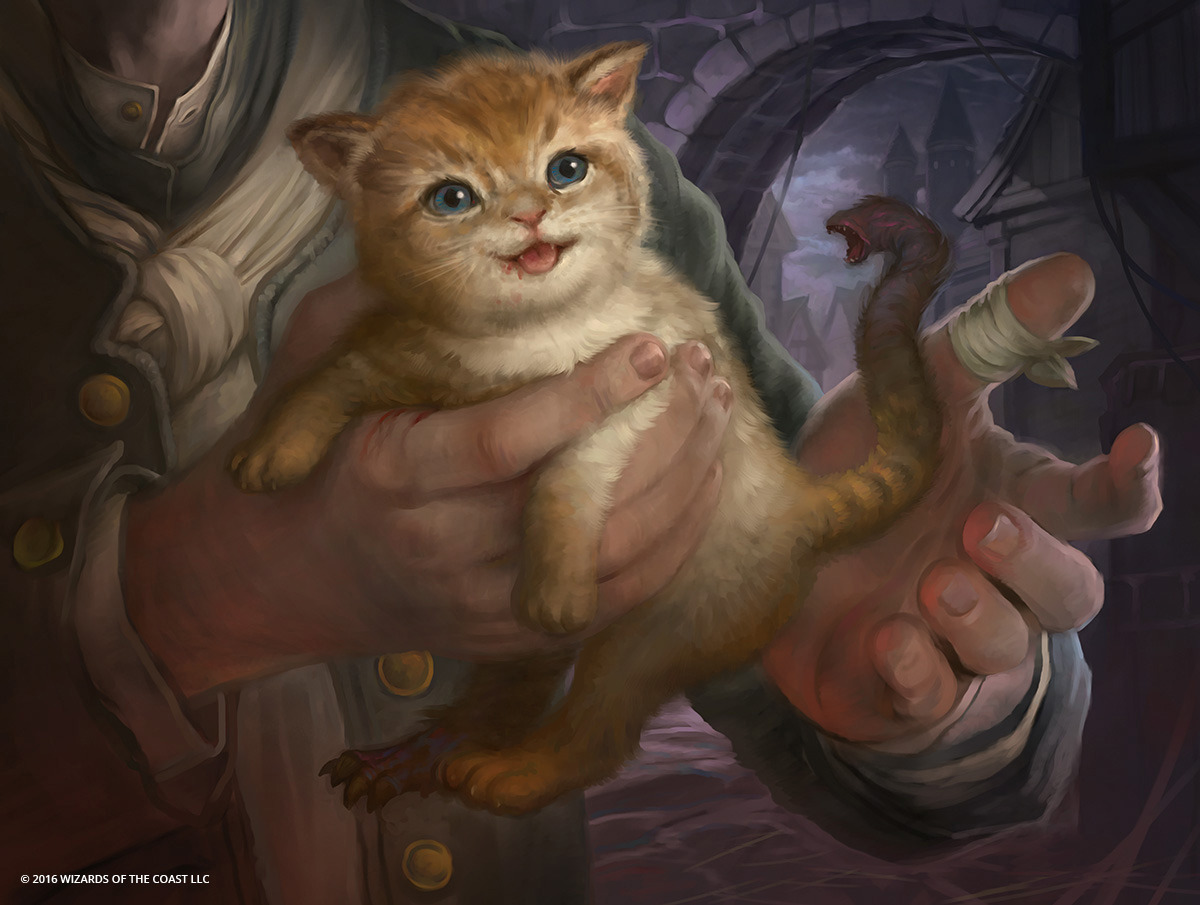[*] "Unambiguously immoral and scummy" seems like a crazy thing to say here, considering that Cedric literally did exactly what you're supposed to do when something weird happens - call a judge.
This is so disingenuous. Nothing "weird" happened. No person capable of playing Magic at a competitive level would ever be confused about what was happening at that game state, ever. The only thought process that can possibly produce a judge call there is realizing that if you're lucky you can con your opponent into agreeing with a seemingly innocuous statement and then persuade the judge to punish them for it.
Also, what happens in the story is
not that Cedric calls a judge immediately when he (claims to) perceive an uncertainty -- he carefully ensures his opponent verbally commits to the claim he's going to leverage,
then calls a judge to come sign off on his victory. He purposely arranges the scenario to make it less likely that the judge clarifies the state of play as expected and more likely that the judge forces the opponent into an illogical play they've supposedly made.
His "clarifying" question isn't asked with honest intent, because the entire goal is for it to sound unimportant but
actually lock the opponent into this illogical play. If this sort of thing is "legitimate," the right response is to stop play and call a judge every time an opponent asks any clarifying question, which is absolutely a destructive lesson to impart to players.
Cedric didn't lead his opponent into making a mistake - he simply held his opponent to it.
There is no legitimate scenario in which one can fairly characterize that as "a mistake." The opponent did something whose intent is 100% obvious. If a person saw this and told me they were legitimately confused, I would call them a liar, because that person is not being honest.
(Specifically skipping all the actual rules lawyery justification since it's not honest when Cedric offers it up and it shouldn't be relevant to this scenario.)
But now you're asking the tournament rules to be able to decipher intent
Nope, I'm asking judges to do so. Humans serve as arbiters in this game so that scenarios that are ambiguous or uncertain can be resolved. Their job isn't there to be rules dispensers, it's to serve as the human agents that enable play to run smoothly and fairly. In this case, the judge failed in that responsibility.
But Cedric literally did nothing wrong.
This attitude is literally
the reason that playing any form of semi-competitive Magic is so miserable. The concept of sportsmanship or that there's some value to winning in an earnest contest of skill isn't anywhere near the table; it's the philosophy of doing as much as you can conceivably get away with in every possible sphere to win, even if game skill never enters into it. It's just deeply unpleasant.


